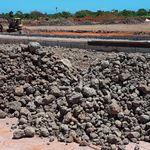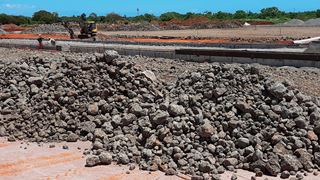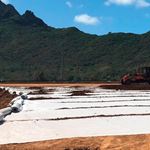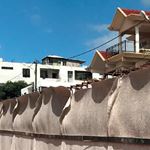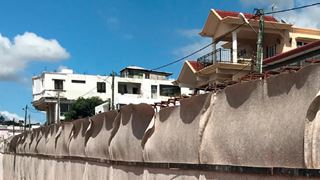Case story
Runway Rehabilitation at Pula Airport
Croatia, Airport
Challenge
Airport runways must satisfy stringent demands relating to quality and safety. Cracks and uneven surfaces can cause dangerous take-off and landing conditions. After many years of use, the existing surface of Pula airport had reached the end of its service life. The old runway had been built in 1954 with a concrete-slab surface. In 1972 the concrete was covered with 3 layers of asphalt and the runway was extended by an asphalt structure of 650 m length. The total length of the runway is 3km.
Not only had cracks appeared due to the continuous rise in loading operations and the increasingly severe weather conditions, but natural bitumen aging (oxidation) had also occurred. Reason enough for the authorities to launch a surface rehabilitation program using a reliable and technically sound method:
The application of TenCate Polyfelt PGM-G. The owner and the designer (DORA inženjering d.o.o.) agreed upon a special composite with a tensile strength of 60 kN/m. Reliability, positive experience with this product and an excellent cost-benefit ratio were deciding factors in this choice.
Technology and quality control
The rehabilitation consisted of removal of approximately 10 cm of the existing asphalt by milling. A bitumen emulsion C 60 BPZ conforming to EN 13808 was sprayed as tack coat in a quantity of 1,4 kg/m2. TenCate Polyfelt PGM 60/60 E was laid in the broken emulsion and two layers of asphalt were installed above:
6 cm of AC 22 base 45/80-65 and 4,5 cm of AC16 surf 45/80-65 conforming to EN 13108. Bitumen amount, grading, voids content and Marshall stability of the mixtures were continuously tested. From the paved layers drilling cores were taken in order to test thickness, compaction, resistance to plastic deformation and bond strength. Evenness was measured by IRI and skid resistance by SRT.
Tight Schedule
As Pula is a touristic place, the airport is busy in summer, so construction works had to be done during the winter months. The execution was done by, one of the Croatian specialists in asphalt works, CESTA d.o.o from Pula. Supply and installation of 20.000 tons of AC 22, 15.000 tons of AC 22 and 160.000 m2 of PGM-G had to be managed within a period of 6 weeks only. This ambitious plan could be realized by using the experience of the contractor and the two installation devices provided by TenCate.
The product
TenCate Polyfelt PGM-G 60/60 is a mechanically bonded PP nonwoven with a grid of fibreglass yarns of high tensile strength. It fully meets the requirements of EN 15381, combining all three functions of stress-relief (STR), Barrier (B) and Reinforcement (R) in one product. PGM-G retards crack formation and increases the service life of the pavement. This was proven once more at Pula airport.
Download resources
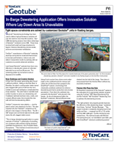
Power Generating Plant




